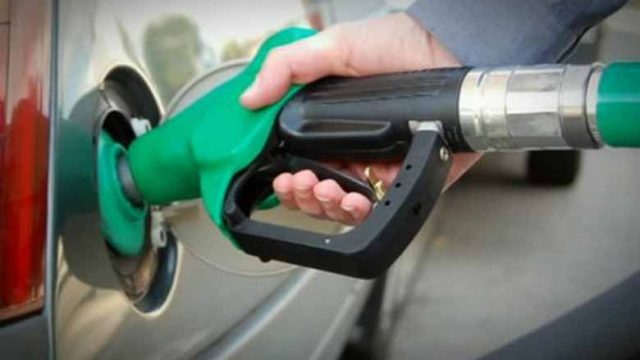ISLAMABAD: Almost failed to make the licensed oil marketing companies (OMCs) comply with the clause stipulating construction of oil storages over past few years, Oil and Gas Regulatory Authority (OGRA) has now asked OMCs to develop retail outlets in the vicinity of supply point/depot, it was learnt reliably.
Copy of OGRA’s letter available with Pakistan Today reveal that the Authority has decided that, in future, the storage facilities constructed by the Oil Marketing Companies (OMCs) shall be allowed to operate in that province with the condition that the company shall develop retail outlets in the nearest vicinity of that depot where IFEM (Inland Freight Equalisation Margin) is applicable from the supply point. However, this shall not be applicable to those OMCs, whose storages are in construction phase currently, said document.
The documents also disclose that the authority has advised 31 OMCs to furnish details of their under-construction storage facilities across the country within seven working days for verifying the same.
“In case no reply is received within the above time period, it will be considered that you have no under construction storage currently,” said OGRA’s letter to OMCs carrying the subject development of retail outlets in the vicinity of supply point/depot.
It is relevant to mention here that though OGRA had failed to make the licensed oil marketing companies (OMCs) comply with the clause stipulating the construction of oil storages over past few years, however, it had issued licenses to 21 more OMCs in just six months to attract investment. OGRA had opened floodgates to the oil marketing companies (OMCs) by granting 21 licenses in just six months (July to December 2016) compared to only 20 over the past 70 years. However, most of the licensed OMCs despite passing above one year period after issuance of license by OGRA have so far not constructed required storage facilities. And, OGRA has recently decided to dismantle its Enforcement Department and put the entire responsibility of enforcement of regulation activities on the shoulders of Oil, CNG and LPG departments of the authority.
According to criteria for issuance of petroleum products marketing license, a new company should develop storages at locations and capacities corresponding to their business strategy, estimated business volumes and associated economics. Moreover, investment plan of the company should concentrate on infrastructure development of depots, installations etc. And, the new company must create a minimum storage of 20 days of their proposed sales as infrastructure prior to beginning sales in the country. A specific plan to this effect over a period of 3 years shall also be provided.
According to OGRA, it has granted licenses to establish Oil Marketing Company to 21 companies i.e. M/s Best Petroleum (Pvt.) Limited, M/s Oil Industries Pakistan (Pvt.) Limited, M/s Accel Petroleum (Pvt.) Limited, M/s Euro Oil (Pvt.) Limited, M/s Oleum Petroleum (Pvt.) Limited, M/s Al-Noor Petroleum (Pvt.) Limited, M/s Damam Petroleum (Pvt.) Limited, M/s Max Fuels (Pvt.) Limited, M/s Fast Oil (Pvt.) Limited, M/s Hi-Tech Lubricants (Pvt.) Limited, M/s Jinn Petroleum (Pvt.) Limited, M/s Vital Petroleum (Pvt.) Limited, M/s International Petrochemicals (Pvt.) Limited, M/s Allied Petroleum (Pvt.) Limited, M/s Only One Energy (Pvt.) Limited, M/s Pak Gasoline Services (Pvt.) Limited, M/s Shams Petroleum (Pvt.) Limited, M/s Berkeley Oil & Gas Development (Pvt.) Limited, M/s Taj Gasoline (Pvt.) Limited, M/s My Petroleum (Pvt.) Limited and M/s Terminal One (Pvt.) Limited.
It is worth mentioning that OGRA has set aside its prime function of protecting the consumers by dismantling the enforcement department and putting the entire responsibility of enforcement of regulation activities on the shoulders of Oil, CNG and LPG departments of the authority which are to some extent not capable to fulfill the assigned task in a professional manner. OGRA’s decision might affect enforcement of regulation activities, causing heavy loss to the national exchequer in the form of reduced revenue etc.
Enforcement Department was enforcing rules, regulations, and standards by conducting surprise inspections at licensed facilities and whosoever was found involved in malpractices and safety violations, meanwhile, action was taken under applicable laws.
Available performance summary of OGRA’s Enforcement Department from October 2009 till January 5, 2018 with Pakistan Today reveals that the Enforcement Department had conducted 10,350 inspections at retail outlets of Oil Marketing Companies, Liquefied Petroleum Gas (LPG) facilities and Compressed Natural Gas (CNG) stations from the year 2009 till 2017 and served 3010 show cause notices beside imposing fine of approximately Rs275 million.
According to performance summary of OGRA’s Enforcement Department from October 2009 till January 5, 2018, Rs260 million was recovered from Shell Pakistan in Ahmedpur East after the unfortunate accident of oil tanker and disbursement of the same to the affectees. Similarly, the department recovered Rs7 million from Hazara Efficient Gas in 2016 after the unfortunate accident of LPG bowzer, collected as well as disbursed among the affectees.
Earlier, OGRA dismantled its Enforcement Department on January 5, 2018, due to increasing workload and optimum utilisation of manpower and put the entire responsibility of enforcement of regulation activities on the shoulders of Oil, CNG and LPG departments of the authority.
It is worth mentioning that establishing the Oil and Gas Regulatory Authority (OGRA) under the OGRA Ordinance 2002, was aimed at providing effective and efficient regulations, fostering competition, encouraging investment, protect the public interest and ensure level playing field within the petroleum industry.




